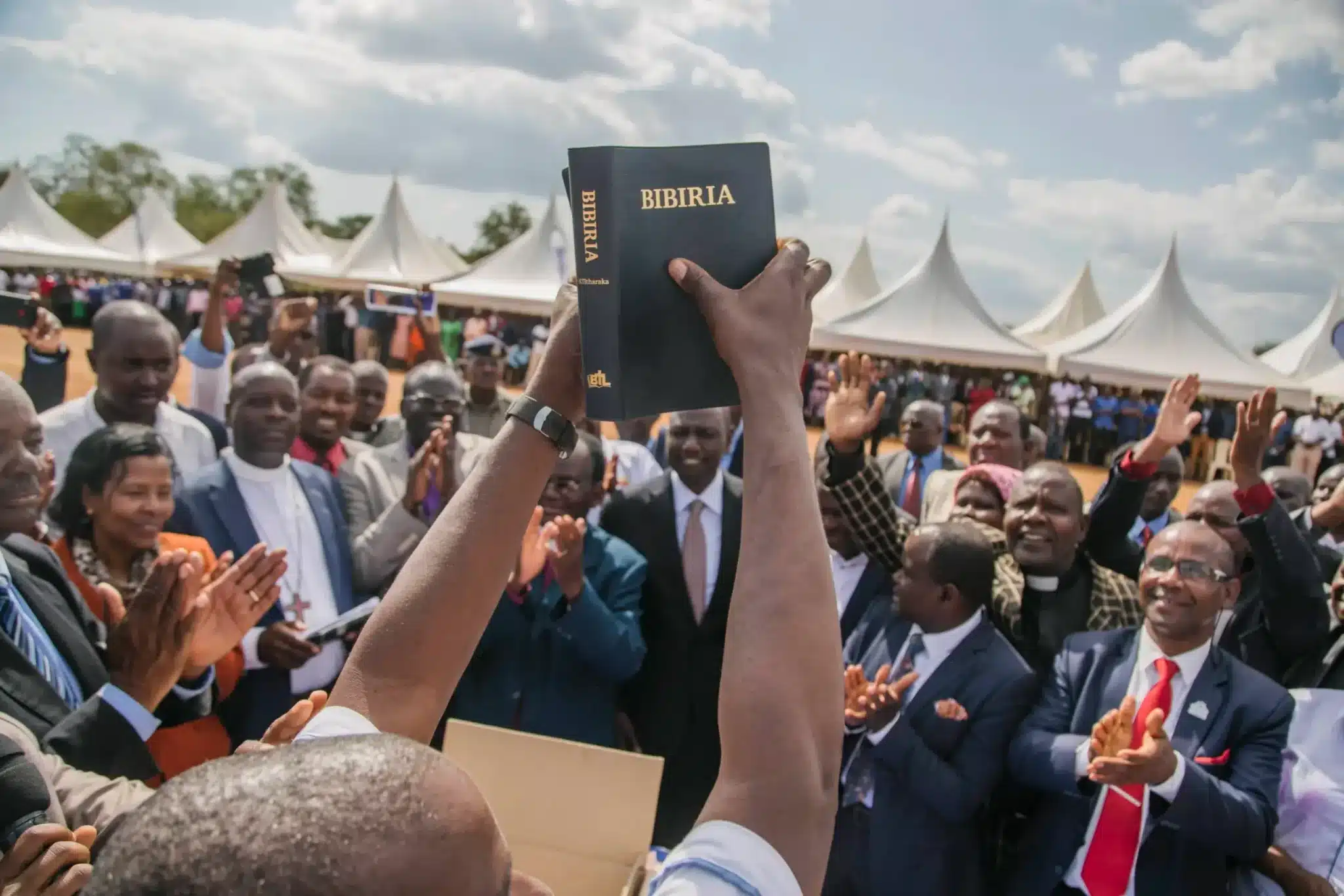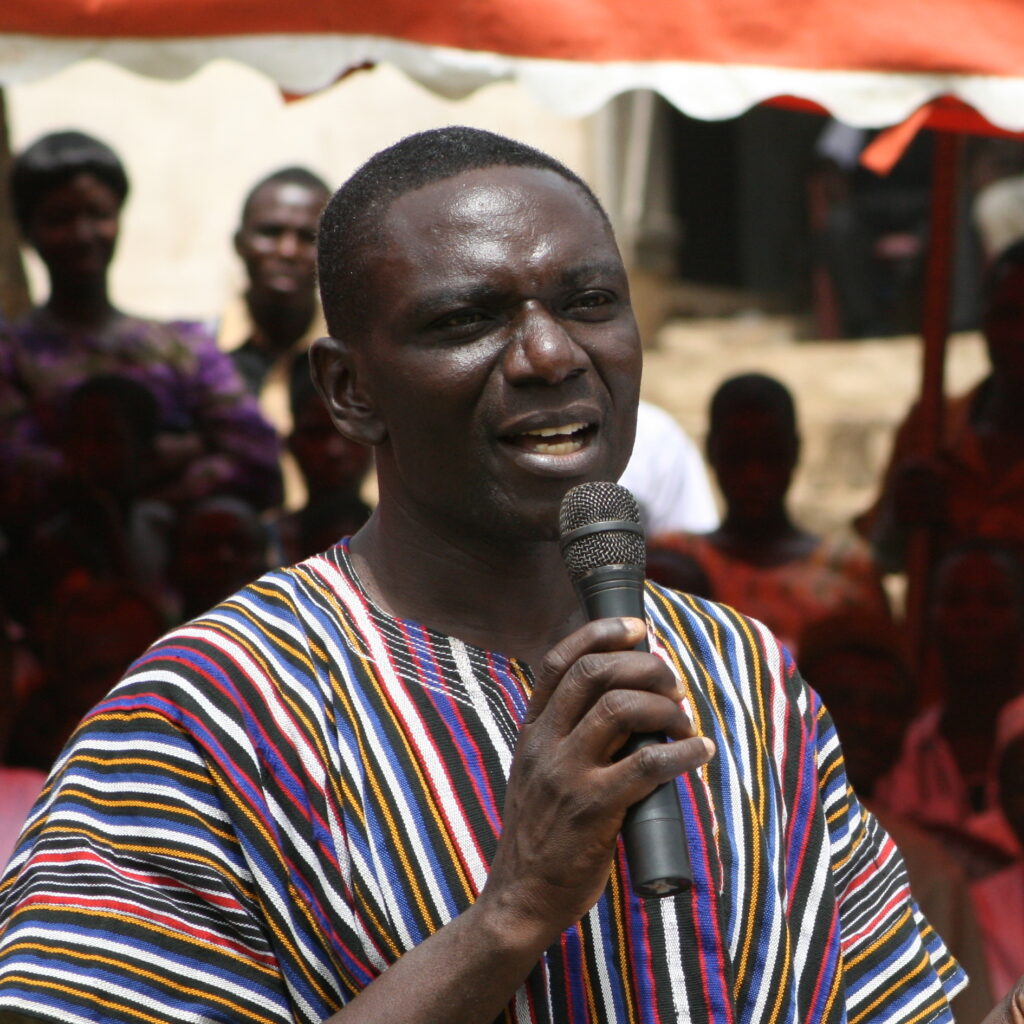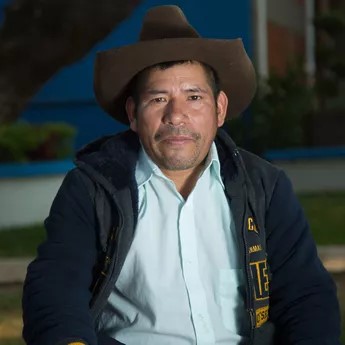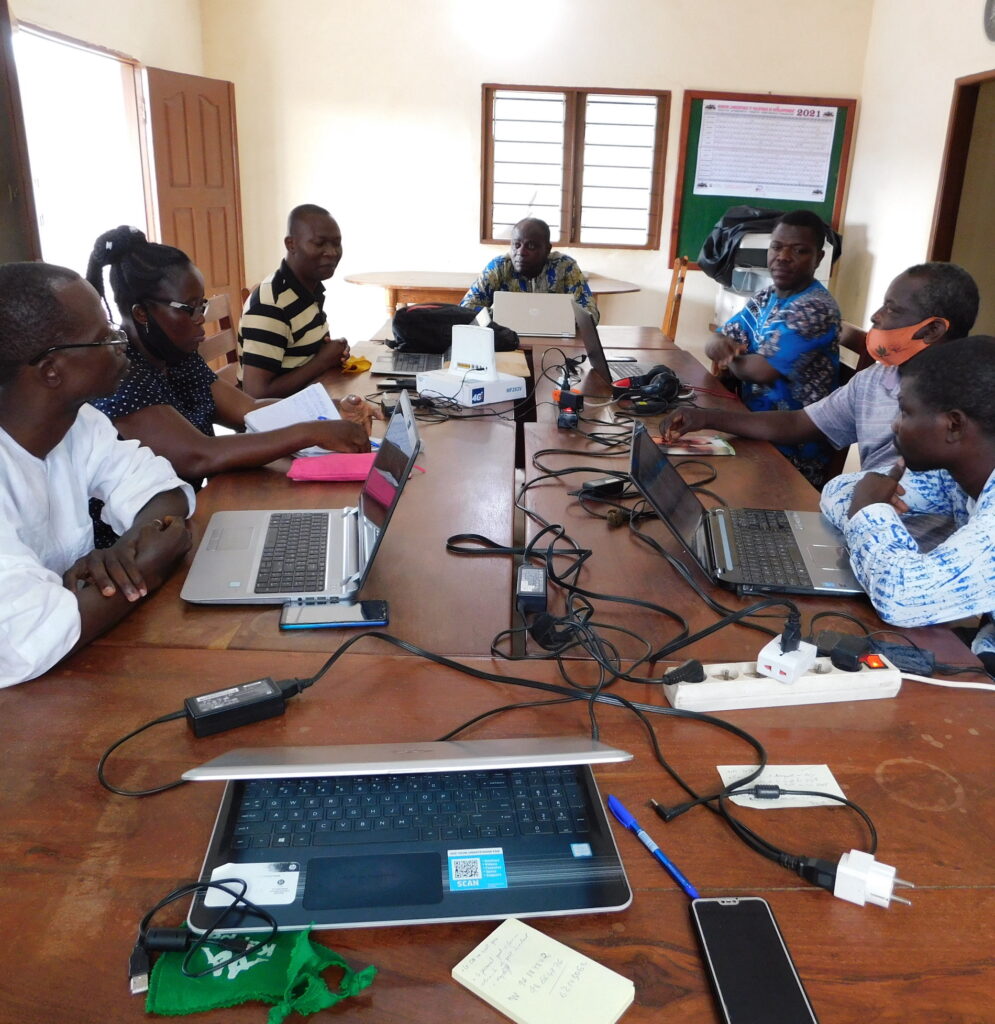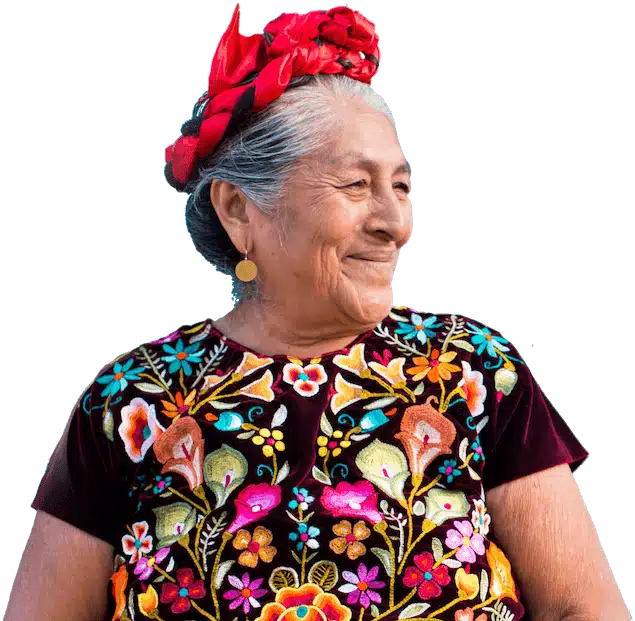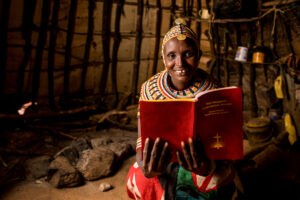Learn something new about Bible translation so you can better share the need with others.
This article—written by Seed Company staff member Amy Nickerson—was originally featured on NextStepDisciple.org, a ministry of Central Bible Church in Fort Worth, TX. We are grateful to share it with you here.
“People do not live by bread alone, but by every word that comes from the mouth of God.” — Jesus in Matthew 4:4 (NLT)
God’s Word is nourishment. Whether you are sitting down with the Bible for morning devotions, listening to Scripture in the car, sharing a reference with a friend, or memorizing verses with your kids, the Bible is available to you daily. It’s lasting sustenance that allows you to know God and grow in your relationship with him.
If we’re honest, many Christians in the Western world (including me) take for granted our easy access to Scripture. Others around the globe crave God’s Word but continue to go hungry. Bible translation exists to right this wrong—to set the table and invite everyone to taste and see that the Lord is good.
As you consider your own relationship with God’s Word, here are seven things you might be surprised to learn about Bible translation:
1. Most people still don’t have Scripture like we do.
We are privileged to have approximately 900 versions of English Scripture to engage with. At the same time, a staggering number of people continue to live without access to God’s Word in their language. Of the 7,396* known language groups on earth, only 743* have a complete Bible, and more than 1,293* have no Scripture at all.
We decorate signs with Bible verses, but a caregiver in Africa has never heard the words of John 3:16.
We choose our favorite Bible from a store aisle stocked full of them, but a community leader in the Middle East only dreams of holding God’s Word in his hands.
We listen to heart language sermons on our phones, but a farmer in Southeast Asia struggles to understand her pastor’s preaching in the national language.
We have more than 100 printed translations of the full Bible to choose from, but a business owner in the Pacific does not even have one.

2. Past saints deserve our thanks.
Our English Bible is a gift: It’s the result of time, sacrifice, and effort given by Christ followers throughout history who wanted to make his name known.
The Bible translation movement began in Alexandria, Egypt, in 280 BC when the Septuagint became the first Old Testament translation from Hebrew into Greek—the everyday language of the people.
In AD 381, St. Jerome translated the full Bible into Latin. Known as the Vulgate, this became the go-to translation for over a millennium. John Wycliffe used this version when he started the first translation into English, circa 1380. And William Tyndale was burned at the stake in 1536 after he translated the Bible from the original languages into English and smuggled printed copies into England.
Our access to Scripture is a direct result of the unwavering commitment of these saints—and many more who believed the Bible was worth reading and desired to see it available in a language people could understand.
3. God wants to speak to the heart.
On the day of Pentecost, described in Acts 2, the Holy Spirit enabled the disciples to speak in tongues they did not know before. A diverse crowd of bewildered individuals heard the wonders of God declared in their own languages. People received the gospel message in a way that was personal, which moved them to respond. Three thousand put their faith in Jesus.
Marta, a woman in Angola, recently described her lack of Scripture this way: “Not having the Bible felt like we were forgotten and were just hitching a ride in someone else’s language.” But when she stood in line for her first copy of a translated New Testament, Marta couldn’t contain her excitement. “This Bible means God speaking to me. It is the mouth of the Lord.”
God is a relational being, willing to put on flesh. He lived among us and became our sacrificial Lamb to restore our relationship with himself. Of course he wants to speak to us in a language we can understand—and he proved it at Pentecost.
Through the Bible translation movement, God still uses his people to spread his Word today.
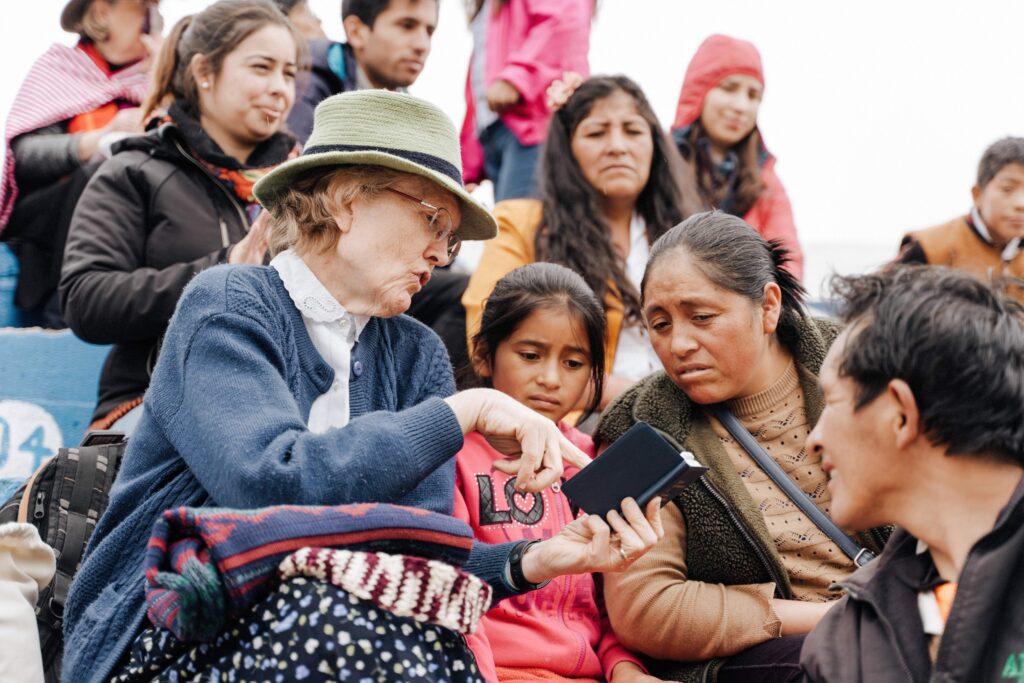
4. The translation process is complex.
Translating the Bible into a language for the first time is far from easy. Once a people group expresses a need for Scripture in their language, a Bible translation organization works with community and church leaders to identify first Scripture goals. They also determine what format—Bible stories, oral, audio, sign language video, print, or digital—will make Scripture accessible to the largest number of people in the community.
Teams want to ensure that their translations are accurate to the original texts while also choosing clear and natural language that their people use every day. The job is tedious and takes trained, mother tongue translators who are willing to do the work. In turn, the translators need support from translation consultants who check Scripture drafts, from local churches that test and use the Scriptures, and from generous people who resource the project.
To keep the Bible’s integrity intact while helping people to grasp meaning, translation teams grapple with important decisions about word choice and cultural context. For example, a landlocked tribe in Africa had no word for boat. So when the Bible said Jesus withdrew to a boat, the team needed to decide whether to use the Arabic word or try to explain it using words the people already had. In the end, they chose a word in their language for an object shaped like a boat and told the people it traveled on water.
And because of the nature of the work, translation teams face spiritual warfare.
Whether fighting health challenges, technology problems, relational dysfunction, or oppression and persecution, these dedicated teams need God’s supernatural power to complete the complicated process of Bible translation.
To watch videos with illustrated information on the process of translating God’s Word, visit this webpage.
5. Bible translation is accelerating.
Thirty years ago, it took 20 to 30 years to translate just the New Testament. But that number is decreasing, and today, a people group can receive their New Testament in 5 to 10 years. Two key factors are accelerating Bible translation: partnership and innovation.
Bible translation organizations have joined forces. They have improved collaboration and are using their unique experience and skills alongside others. Local churches have also become more invested in their projects by providing mother tongue translators who already know the language and culture. They may also offer other resources such as meeting places and monetary or in-kind donations.
Along with shared ideas, the use of technology like Starlink and Artificial Intelligence is increasing capacity, improving processes, and providing opportunities for better, faster, and less expensive translations.
We can now see the day quickly approaching when zero people groups are Bibleless.
6. The Commission is for all of us.
Jesus’ Great Commission to the apostles in Matthew 28:19–20 was to “Go and make disciples of all the nations, baptizing them in the name of the Father and the Son and the Holy Spirit. Teach these new disciples to obey all the commands I have given you” (NLT).
The Great Commission is a call for all Christians. And Bible translation is foundational to completing this mission.
Anna, who is involved in translation work in Asia, put it well: “It is clear that people come to Christ not because of our words, but because of his words.”
Disciple-making that spreads God’s kingdom to the ends of the earth will be achieved only through people having access to Scripture in their language.
7. The vision is epic.
One day, Isaiah says, there will be a feast. People from all over the world will be there, and the Lord of Heaven’s Armies will “remove the cloud of gloom, the shadow of death that hangs over the earth” (Isaiah 25:6–8 NLT). Death will be swallowed up once and for all, and God will wipe away all tears.
We know about that incredible day because we have God’s Word. While we wait for this vision to be realized, we have Scripture to nourish and sustain us.
God’s kingdom is coming, and believers from every nation, tribe, people, and language will be there (Revelation 7:9 NLT). Bible translation aims to invite everyone to the table.

*ProgressBible™. SNAPSHOT. February 2024.
